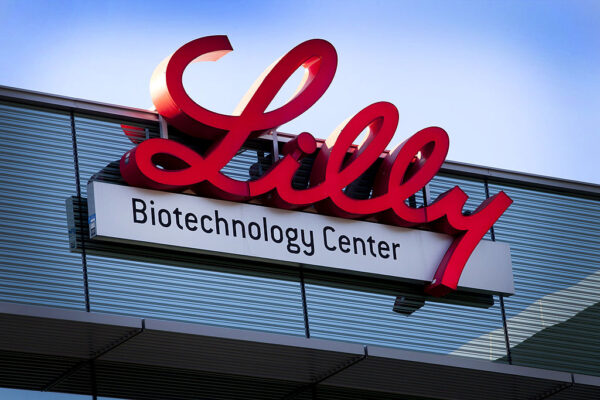
The FDA has granted accelerated approval to two Alzheimer’s disease drugs so far. Eli Lilly’s amyloid plaque-busting therapy won’t become the third. The Lilly drug still has a chance to pass regulatory muster, but it will take more data and more time.
Lilly announced the complete response letter Thursday evening. According to the company, the FDA rejection cited the submission’s lack of data from patients who have been treated with the drug, donanemab, for at least 12 consecutive months. The agency wants to see such data from at least 100 patients.

With the Rise of AI, What IP Disputes in Healthcare Are Likely to Emerge?
Munck Wilson Mandala Partner Greg Howison shared his perspective on some of the legal ramifications around AI, IP, connected devices and the data they generate, in response to emailed questions.
“While the trial included more than 100 patients treated with donanemab, due to the speed of plaque reduction, many patients were able to stop dosing as early as six months of treatment, resulting in fewer than 100 patients receiving 12 months of donanemab,” Lilly said. “The FDA indicated that the data to meet the exposure expectation would likely need to include the unblinded controlled safety data from TRAILBLAZER-ALZ 2 upon completion.”
TRAILBLAZER-ALZ 2 is the confirmatory Phase 3 trial that’s ongoing. Preliminary data from that study are expected in the second quarter of this year. Lilly said when it has those results, they will form the basis of an application seeking traditional regulatory approval. That will likely push an FDA decision on donanemab into 2024.
The 2021 approval of Biogen’s Aduhelm made it the first Alzheimer’s drug to reach the market under accelerated FDA approval. Two weeks ago, Eisai’s Leqembi landed a speedy FDA nod under the same pathway. Both drugs target and break up amyloid, the protein that forms plaques on the brains of Alzheimer’s patients.
Like the Biogen and Eisai drugs, donanemab is also an amyloid-targeting antibody. But the Lilly drug is designed to target a modified form of beta amyloid plaque called N3pG. The Phase 2 test of donanemab enrolled 272 Alzheimer’s patients in the early stage of the disease; 131 in the study drug arm and 126 in the placebo group. The main goal was to measure, at 76 weeks, the change in score according to a composite assessment scale measuring cognition and function.
Results from the Phase 2 study were published in 2021 in the New England Journal of Medicine. Comparison of the donanemab group to the placebo arm showed a statistically difference in the change in scores. But the assessment of the main study goal at week 52 had only 88 patients in the donanemab arm. Discontinuations in the study were higher in the donanemab arm. In that group, seven participants dropped from the clinical trial—two of them due to brain bleeding, a side effect that is a known complication of amyloid-targeting Alzheimer’s drugs.
[Update: The following three paragraphs added with analyst comment.] In a research note sent to investors Friday morning, William Blair analyst Myles Minter wrote that for a regulatory submission to be considered for approval, intracerebral hemorrhage (ICH) guidelines for safety typically require data from 300 patients at six months of exposure to the study drug and 100 patients at 12 months. In donanemab’s Phase 2 study, patients in the donanemab arm continued to receive the study drug until achieving plaque clearance as shown on an imaging scan.
“At 28 weeks, 27.4 % of donanemab-receiving patients were switched to placebo, meaning under 100 patients were treated with the active drug through 52 weeks to satisfy the ICH guideline,” Minter said.
Lilly said said the safety profile of donanemab has been consistent since the company submitted its accelerated approval application. Noting that comment, Minter said the incidence of brain bleeding has been higher in the donanemab study compared to what’s been observed in Eisiai’s tests of Leqembi. The complication may be a problem with Leqembi or with the class of anti-amyloid drugs. Given recent reports of patient deaths in the Leqembi study, Minter said this complication will be a data point to watch for in donanemab’s Phase 3 data.
Other than the lack of data for at least 100 patients after one year of treatment, Lilly said the FDA cited no other issues with its application.
“We look forward to our upcoming confirmatory TRAILBLAZER-ALZ 2 Phase 3 results and subsequent FDA submission, which we’ve always seen as the most impactful next steps for patients,” Anne White, executive vice president of Lilly Neuroscience, said in a prepared statement. “We anticipate this study will confirm the benefit and safety profile we observed in the TRAILBLAZER-ALZ Phase 2 study and believe that patients and physicians will be well served by having the full Phase 3 data available alongside our Phase 2 data when they need to make treatment decisions.”
Photo: Konrad Fiedler/Bloomberg, via Getty Images














